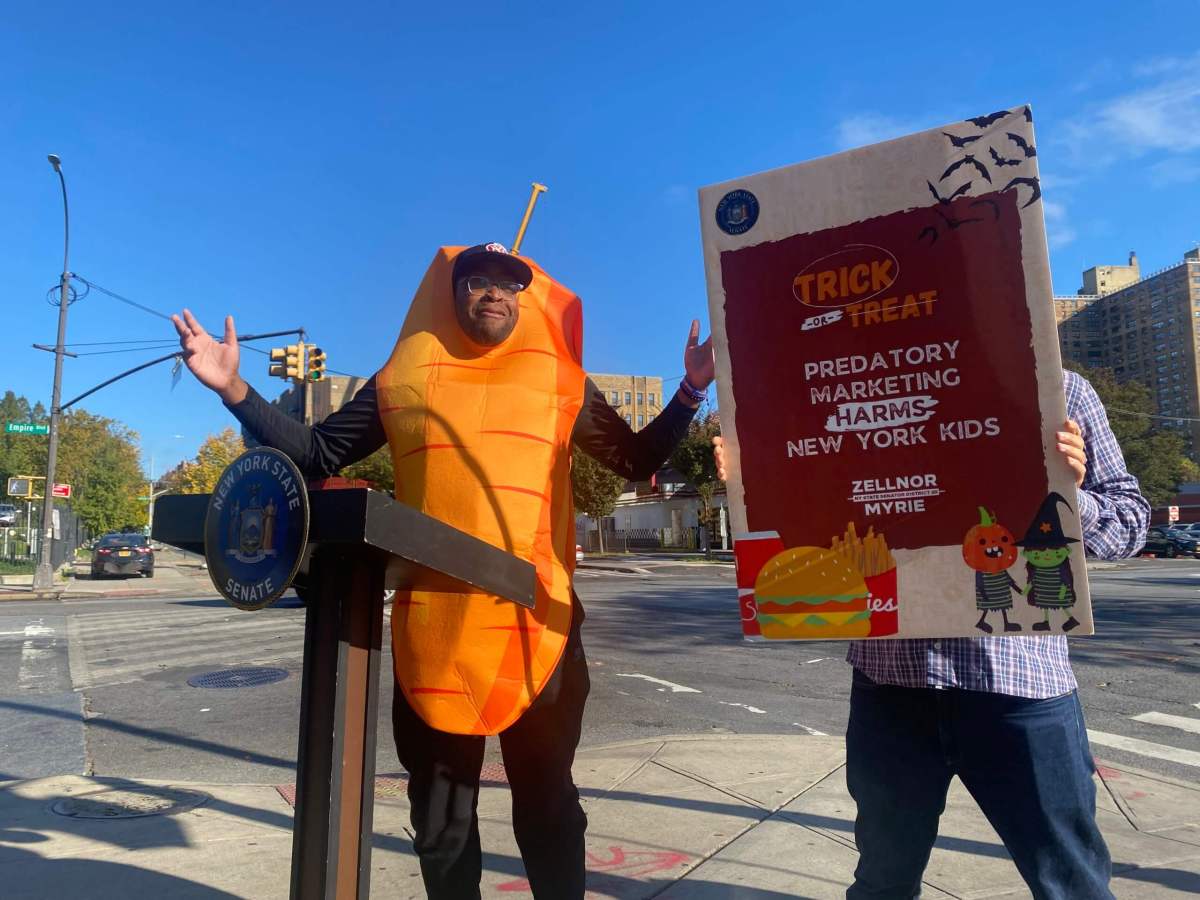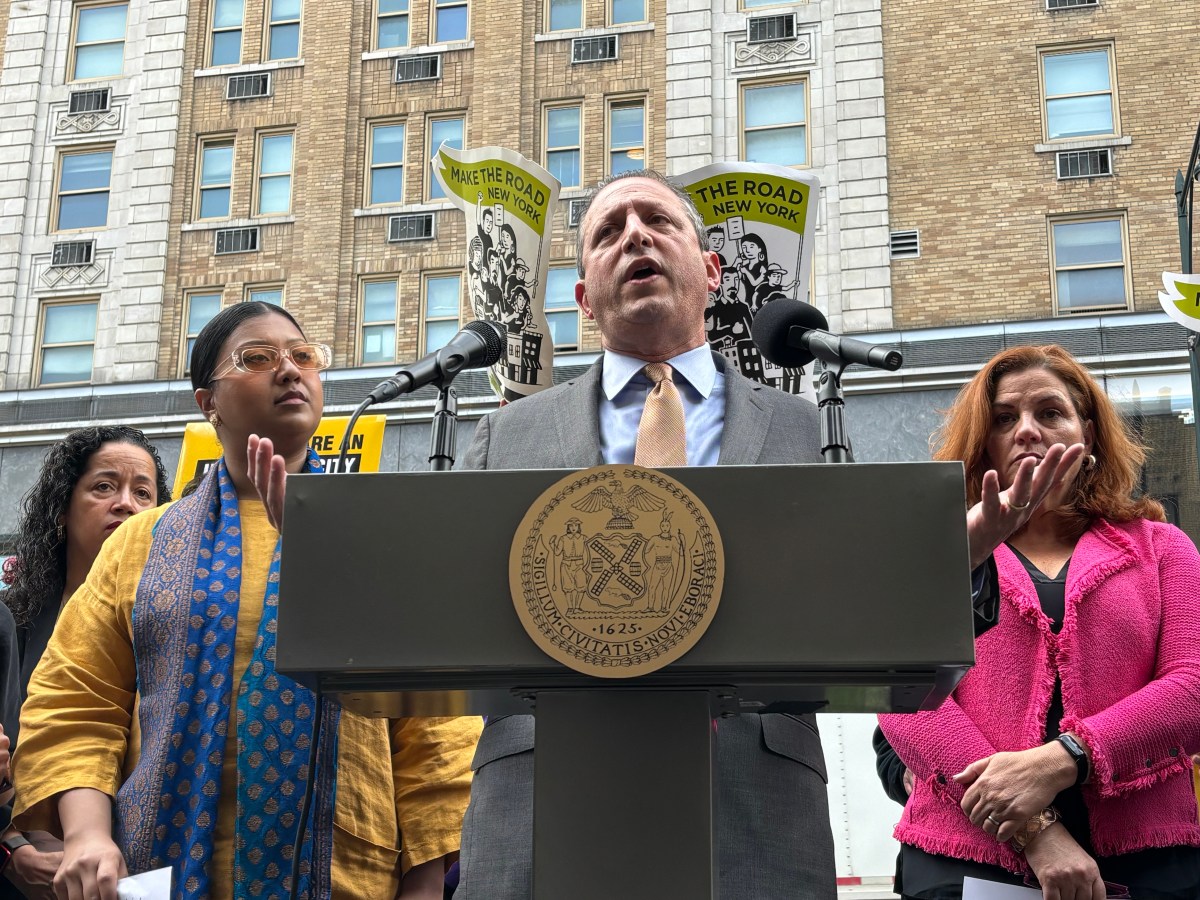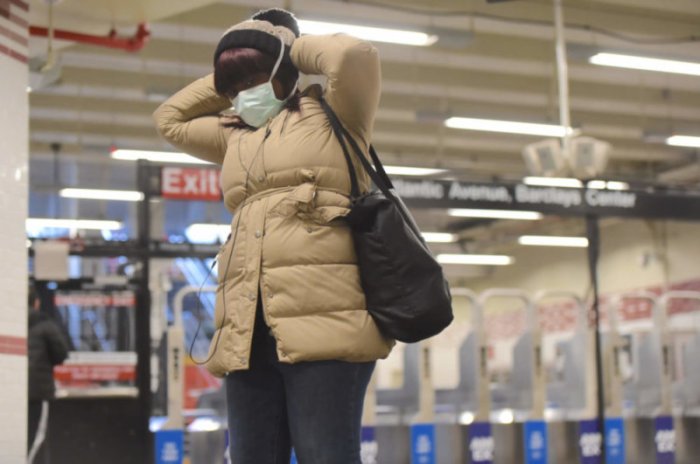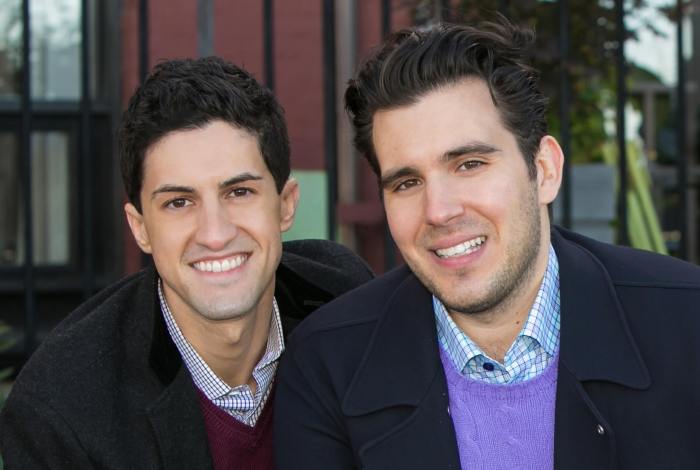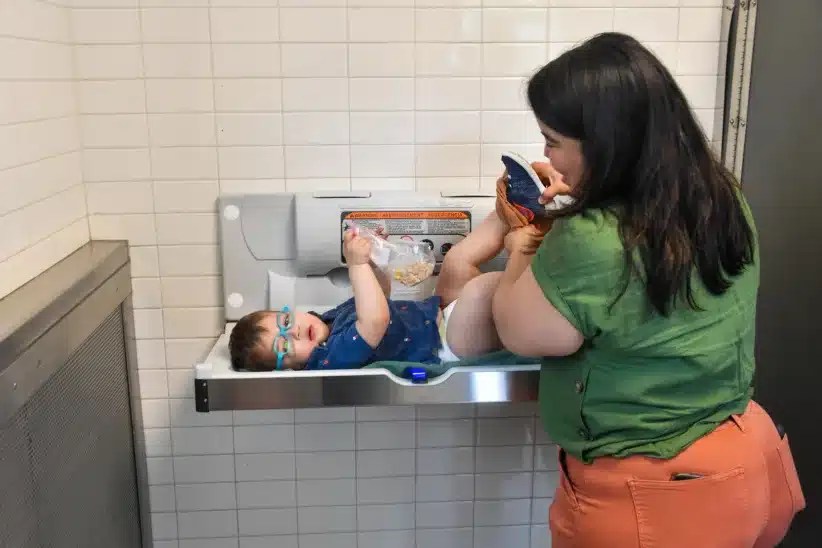It’s a game of carrots and schticks!
Dressed up as a carrot, State Sen. Zellnor Myrie attempted to take a chomp out of junk food marketing on Thursday with his new bill that would food regulators to target corporations that advertise unhealthy foods.
Myrie — who represents parts of Crown Heights, Brownsville, Park Slope, and Sunset Park — discussed the bill on Oct. 28 while donning the big orange carrot costume on Empire Boulevard near Washington Avenue in Crown Heights, a strip dominated by fast-food chains.
“We have four fast-food chains within a stones throw of each other, and what you can’t see is that there are two schools right behind both of these fast food chains,” he said.
A Popeyes sits on the corner of Empire Boulevard and Washington Avenue, directly behind a Wendy’s on the opposite corner. Across the street, consumers can find a Checkers, next door to a McDonalds.
The strip is traversed by hundreds of schoolchildren a day, Myrie noted, while reminiscing about his own history as a baby carrot in the area.
“I used to get the bus to go to school right on this corner, and I would walk back from school right on Empire Boulevard,” he said.
The bill, officially titled the Predatory Marketing Prevention Act, works by clarifying that children are particularly vulnerable to predatory or false advertising of junk foods — a provision to laws that already prevent blatantly false advertising.
The carrot’s bill also allows the Department of Health to work alongside local school districts to promote healthy eating, and doesn’t prohibit them from labelling unhealthy foods as what they are — junk.
“At bottom, this stands for one basic principle,” Myrie said. “There is nothing more valuable than the health of our children, and our children should not be sacrificed at the altar of profits.”
The effects of the prevalence of unhealthy foods in communities of color has been laid bare by the pandemic, Myrie said.
“Obesity and the comorbidities associated with obesity are the second leading cause of death in the United States,” he said. “We saw during Covid-19, our communities died at a disproportionate rate, not because there was something uniquely deficient with us, but because we suffer from those very comorbidities.”


